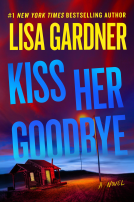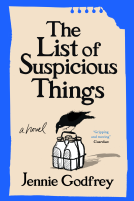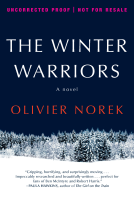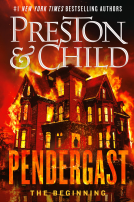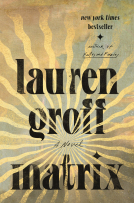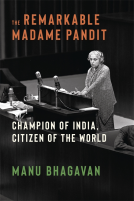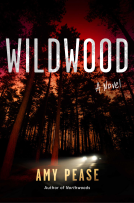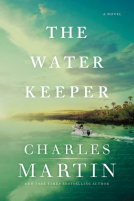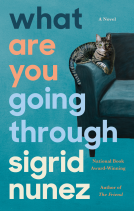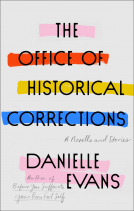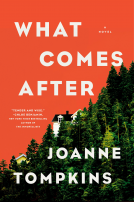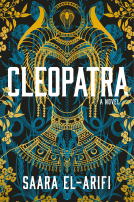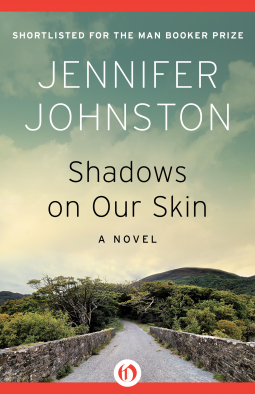
Shadows on Our Skin
A Novel
by Jennifer Johnston
This title was previously available on NetGalley and is now archived.
Send NetGalley books directly to your Kindle or Kindle app
1
To read on a Kindle or Kindle app, please add kindle@netgalley.com as an approved email address to receive files in your Amazon account. Click here for step-by-step instructions.
2
Also find your Kindle email address within your Amazon account, and enter it here.
Pub Date Jun 24 2014 | Archive Date Sep 24 2014
Open Road Integrated Media | Open Road Media
Description
Inside his home in Derry, Joe Logan's life is ruled by his tormented father; outside, by the tension and violence of the Troubles. Sometimes his father makes him run errands despite the nearby reports of gunfire. Other times his mother, afraid to be alone with her volatile and war-wounded husband, confines Joe to the home. A bright and sensitive young man, Joe finds solace and freedom in writing—a pursuit encouraged by Kathleen Doherty, a young teacher at a nearby school whom he meets and befriends. In Kathleen, Joe has found a friend who understands him, makes him laugh, and allows him to forget his burdens for a time. But everything changes when his brother, Brendan, arrives home from London, newly energized to join the raging fray, and cavalierly bringing the war straight into their home.
Available Editions
| EDITION | Ebook |
| ISBN | 9781497646407 |
| PRICE | $14.99 (USD) |
Average rating from 20 members
Featured Reviews
 Mandy J, Reviewer
Mandy J, Reviewer
Joe Logan is a teenager growing up in Derry, Northern Ireland in the 70s, with the Troubles at their height. Their presence is palpable throughout the novel, whether as a potential danger, a night-time raid or just the sound of gunfire in the distance. But for Joe they are just a way of life and he is more concerned with negotiating life at home and school. Jennifer Johnston’s skill at characterisation is evident here, as Joe, a sensitive boy, comes alive on the page, and his relationship with a lonely teacher who befriends him is both poignant and moving. This is a gentle book set in troubled times, told in Johnston’s trademark spare and understated style and a compelling account of growing up in Northern Ireland. All her characters are lost or lonely or damaged in some way, and the atmosphere is one of hopelessness. A melancholy although not a depressing read and one that vividly conjures up a terrible time in Irish history. I loved this book, as I do all of Johnston’s writing. Published originally in 1977, it isn’t perhaps as good as some of her later novels, but it’s nevertheless a compelling and absorbing story, and the interweaving of the personal and political is skilfully handled. Highly recommended.
 Christine E, Reviewer
Christine E, Reviewer
Disclaimer: Digital ARC of the Open Road Media edition read courtesy Open Road and Netgalley.
This book was apparently shortlisted for the Man Booker prize but to call it a book is slightly misleading for it is rather short. The sheer length or lack of length of the work is misleading because despite its shortness it is a heavy, morality tale that focuses on the Trouble and the conflicts that occurred not so much between Catholic and Protestant but between families as each member and the friends try to find a place to stay in the shifting morass.
The Open Road Media release of the book (formatted eBook) is especially apt considering the recent events concerning the Boston University tapes of IRA troubles and the investigation into the murder of a mother, whose children still live near those who killed her mother. It is impossible not to think of that story when reading this work. It is important that the reader doesn’t lose sight of that.
Joe is a student of indomitable age. He has to be close to thirteen at the youngest and fifteen at the oldest. He lives with his mother and father. The family situation is strained because Joe’s mother works, the only source of income for the family. Joe’s father is sick, or at least claims he is, and lives only for his glory days in the cause, though Joe’s mother has a slightly different take on this. Joe is his mother’s child, her golden boy, who is going to do well in school, and unspoken as it is, get out and live a good life.
Joe has a talent for poetry and no real talent for maths or more rigid schoolwork, and it is this lack of interest that causes him to stay late at school and on his way home meet Kathleen. Kathleen is older and burns brighter than Joe. Unlike his house which is beset by the darkness of the Troubles, they seem to roll off Kathleen’s back like water. If Joe’s mother represents passive disinterest and dislike, the mother losing everything and only seeing the cost, while his father (and eventually his brother) represents active battle, Kathleen represents peace. She isn’t a hippie, though she is far freer than anyone else Joe has met. She just is and she accepts me.
It is a strange relationship to have at the heart of the book. Perhaps it says more about my American view that what the initial stumbling block for me was the age difference. She might not be Joe’s teacher, but she is a teacher at a girl’s. There is a vague whiff of inappropriate behavior to me, that is quickly dispel because Kathleen is looking for a kindred spirit to be friends with, and Joe is such a spirit. For others, for those who lived though the troubles, the stumbling book might be the friendship between the Protestant Kathleen and the Catholic Joe, though Kathleen’s Protestantism is something that she seems to wear as lightly as Joe wears his Catholicism.
While Kathleen’s interest in Joe may, at most, be that of an older sister for a younger brother, Joe’s interest in Kathleen is accurately and painfully reminder in such a way that the reader is more fully aware of the depth of emotion than Joe is. Joe wonders about his actions, his jealous and his dislike of his older brother that comes from something other than Joe being forced to step up when, quite frankly, he should be free to be a teen. When he commits a wrong, it is a wrong that any teen, any young person regardless of gender would make. It is action borne out of jealous and hate and one that is seen every day, everywhere. However, because this is Ireland during the Troubles, well, the action has harsher effects that Joe thought it would.
The book works because of the dialogue. By conveying must of the action though talk, Johnson is able to transport the reader to the neighbor, to that section of Northern Ireland in a far better way than simply describing place and time The reader becomes another member of the area, less obvious and more secretive, but more aware than Joe simply because of age and experience.
 Nigel R, Reviewer
Nigel R, Reviewer
This may be a book "of its time" (& place) as it is set in and originally published 70s Northern Ireland during the Troubles. However I found it a very worthwhile read now with an insight into a microcosm of life there at that time. Seen through the eyes of Joe, a young boy, and his family in Derry (Londonderry) it paints an effective and evocative picture of the time and place. It is beautifully written with a very poetic feel to it not least of which because poetry interests Joe far more that many other aspects of his life even when he meets another adult from outside his family. I found Joe's character very easy to become involved with combining the hopes and fears of a young boy with those of his family and his new friend.
Woven through it very effectively is a Horslips song (Time to kill) both as poetry and as a form of commentary on the Troubles which begin to touch Joe and his family rather more. The book clearly shows a tiredness with the situation and at times is really quite dark. However it is also soft in a very Irish way and has strands of hope and light in it. At the time it was first published (1977) some of the views expressed would have been very provocative however it is easy to see why it was well regarded at the time and for me it still reads very well indeed in the current time. I really enjoyed it and would happily recommend it to anyone with an interest.
 Jen M, Reviewer
Jen M, Reviewer
Shadows on Our Skin
Book Description: Recognized as a small masterpiece when first published in 1977, and shortlisted for the Booker Prize. A poignant novel about a boy in Derry jolted into early adulthood by harsh circumstances.
------
Not everyone remembers the horror of The Troubles in Northern Ireland--the murders, the bombings, the checkpoints, the constant guerrilla warfare. A terrible time, a time of great violence; mothers didn't want their children on the street for fear of gunfire.
This novel was written in the midst of the troubles and examines the life of one family and the effects the Troubles had on them. Joe Logan is the protagonist, a young boy stuck in a city under siege, whose home life is also full of anger and resentment.
Joe finds a friend in Kathleen, a young school teacher who provides him with some respite from the harsh realities of life in conflict-ridden Derry. But when Joe's brother Brendan returns and joins the Provos (Provisional Irish Republican Army), the problems at home escalate. Then Brendan begins dating Kathleen, and Joe feels jealous and left out.
An intense and moving account of a time period that tore a country and families apart.
Recommended.
NetGalley/Open Road Media
Literary Fiction. 1977; 2014. Print length: 177 page.
Thanks to Open Road Media and NetGalley for the opportunity to read this book .
*****************************************************************************
You'll find a piece of recent Irish history , soldiers in the street , the sounds of gunshots , people screaming . This is a routine day and night in the town of Derry in Northern Ireland during The Troubles , the unrest that spanned for thirty 30 years .
While this ebook release of this 1977 novel depicts that time in Northern Ireland , this is a beautifully written , coming of age story of Joe Logan , a young boy ,most likely in his early teens . It's about the family struggling to cope with what is happening around them and fighting their personal demons.
Joe is befriended by a teacher, Kathleen Doherty and their daily talks, teas and excursions provide comfort and respite for Joe from the tensions and arguments in his home and what is happening on the street around him . But then Joe's brother Brendan returns home and everything changes.
This is a short book but yet it is filled with so much emotion . Your heart will ache with Joe but you will be glad you read this book . It's not a surprise that this was on the short list for the Booker Prize on 1977 .
Highly recommended .
 Educator 144982
Educator 144982
I thought this was a very compelling study of a particular time and place in the history of Northern Ireland, and while the plot moved rather slowly, the level of detail--emotional, physical, and geographical--made the book very hard to put down. While the narrator seemed to feel himself to be without hope, the author belied this with great subtlety, created a fully three-dimensional character on the brink of understanding a great many things about the world he has only hazily comprehended before.
 Maureen T, Educator
Maureen T, Educator
I did not read this when it came out in the 70s, but as an American Irish Catholic, was very much aware of "the troubles". It was a horrible time for both sides in this seemingly never ending conflict.
The novel is a wonderful coming of age in these troubled times books. Joe is a sensitive teen age boy, who cares more about poetry than maths, carries the burden of his mother's hopes and dreams after his brother returns to join the struggle and is also his dad's step'n fetch-it boy.
Johnston's short portrayal shows the innocence and the violence of the times. The themes of the novel are not tied to the '70s, but transcend time.
Well worth the read.
Originally published in the 1970's when Northern Ireland was in the midst of "The Troubles" where Catholic was pitched against Protestant and Irish against British. British soldiers walked the streets of Northern Ireland, homes were raided on the search for IRA soldiers and supporters. These were turbulent and frightening times for anybody to live in, especially a child.
Shadows on Our Skin is the story of a young dreamer called Joe who lives with his ailing, cranky sick father and harsh, resentful mother in Northern Ireland. He has a gentle soul, the environment does him no favours, he escapes through thinking up and writing poetry but each day he faces the reality of the world he lives in.
This is an atmospheric book, you really are transported back to these difficult times, you can sense the fear, the suspicion, the trauma all around. Joe meets a young teacher and strikes up an unusual friendship with her. It never revealed Joe's age, but I would guess between 12-14 years of age, the teacher is a young women and she chooses to befriend him, at first I was suspicious of this relationship, wondering if it was inappropriate but this teacher really just wants to bring a smile into a young boy's life and I think she is lonely too. She too has her secrets.
Then the spanner in the works turns up, Joe is happy with his new friend, writing poetry for her and feeling someone understands him at last. The "spanner" is his older brother Brendan who returns from working in London back home. Suddenly Brendan and his friend are talking and spending time together and Joe has to deal with a lot of intense emotion around it. He's a really wonderful character, young Joe, I just wanted to give him hugs and tell him it would all be okay.
In part, a coming of age story as Joe deals with some very mature situations that he faces, choices he makes and who he is becoming. It's a poignant and powerful book that really does reflect the awful times that children had to live in during the 1970's in Northern Ireland. Joe is but a victim of the civil war going on all around him.
A series of events split his world apart, and Joe is left to process the consequences of things he has done and choices he made. Shadows on Our Skin is a book that is quick and enjoyable to read, but also evokes sadness and seriousness as you absorb the life of the characters within it.
The book was shortlisted for the Man Booker prize and I am not surprised, it's very well written and has stood the test of time with many readers. I think the author did a marvellous job or portraying the characters of Joe's father and mother, I really was right there, in their tiny little kitchen as his mother poured the tea and his father complained about how he was once a hero but no more.
I escaped into Joe's world and glad I did. An engaging and meaningful novel.
 Dor M, Reviewer
Dor M, Reviewer
[This book was provided to me for no monies by the publisher, Open Road Media, facilitated in this act by NetGalley. I thanks them for it.]
I had never heard of Jennifer Johnston until this book cropped up in my feed, which is surprising given the amount she's written and the awards she's picked up. On the other hand, given the trouble I'm having trying to think of anything to say about this book, maybe I can understand it.
Published in 1977 and short-listed for the Booker Prize, Shadows on Our Skin is the story of a Catholic schoolboy's friendship with a young Protestant teacher in Northern Ireland. As can be expected from a literary work, we're in the land of people living their lives rather than a didactic "wouldn't it be nice if everybody was nice?" tale. The darkness and the politics of 70's Belfast is, for much of the book, subtext; we are given a boy's life, one of distant bangs and of a mother who angers when he doesn't come straight home from school, but only until we are not.
Shadows on Our Skin is beautifully written if a little opaque at times. Perhaps it is that I am coming to a contemporary work from a modern perspective, so I found things - and in particular, the delicately phrased ending - a little hard to get hold of. The narrative stays with Joe, certain events staying off-screen, and I had many questions about why certain characters did and didn't do things. It was the feeling of things I didn't get rather than one of plot holes.
This is well worth reading, but at the same time I rather lack enthusiasm for it. I'm going to give it 3.5 stars because the writing is wonderful, but on a purely personal level I didn't make an emotional connection with this book although I have a lot of objective appreciation for it.
 Susan D, Reviewer
Susan D, Reviewer
Shadows on Our Skin was originally published in 1977, in the midst of The Troubles of Northern Ireland. And Troubles are what are depicted here on the community and personal levels, through the young boy, Joe Logan, and his family, as well as a young local teacher, Kathleen Doherty, who becomes Joe's friend. Then to heighten the tension, Joe's brother returns home from his job away in England.
Joe Logan, growing up with a young poet's soul, is so lost amidst the violence, the mess of his family, the mayhem of the streets, that he spends much of his time daydreaming. His father is physically and mentally left in the past with the real or mythical heroics he performed for Ireland. His mother works hard to support the family and survive. Joe dreams of leaving and writes poetry during math class.
Kathleen is another escape for him. She is a somewhat older woman, but not too old. Approachable if not available. Part of his escape from the bombs and bullets and night time raids.
The writing is so good that I would go back and re-read phrases and paragraphs. Lots of highlighting. Describing a row of houses:
The windows of the houses stared at the sea. They had stared at the sea for several hundred years, they enjoyed their occupation. (loc 2528)
And Joe's worries about his future and writing:
What is there for me, he wondered, if I can't make words dance, as the birds are dancing? A man with a brush and tubes of colour can put these patterns on a page so that you can recognize them. Say, ah yes. Can I, with a biro pen and a string of words? Where? How do you start?
What are the rules? Do you find them out as you go along?
....I don't want to drive the dry cleaner's van, or be an electrician. There should be someone you can talk to.
(loc 2541)
And added to this, the confusion of a war-like atmosphere at home and in the streets.
Later that night the army came and lifted Sean Buckley.
Joe didn't know, at the time whose house they were at,
whose voices were shouting, whose door was being battered down. He lay stiff on the camp bed listening as the boots thudded down the street past their own house,
and the battering started on a door across the road.
(loc 1029)
So much turmoil in Joe's life related to his age, his family, his city, his country, all captured so beautifully and with appropriate melancholy by the author. A grateful thank you to the publisher for bringing this book back again in an ebook format.
Thanks to Open Road Media and NetGalley for the opportunity to review this novel.
